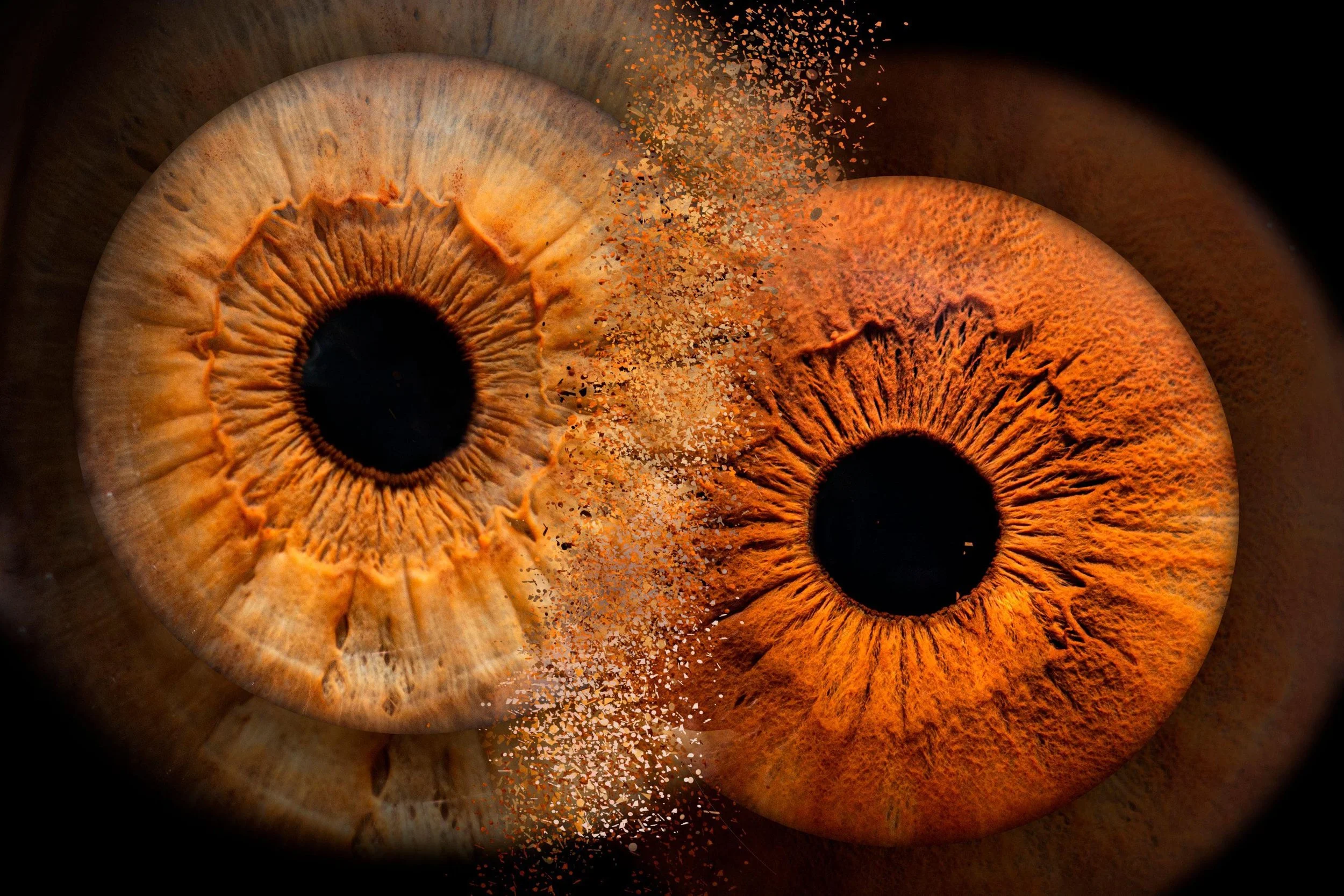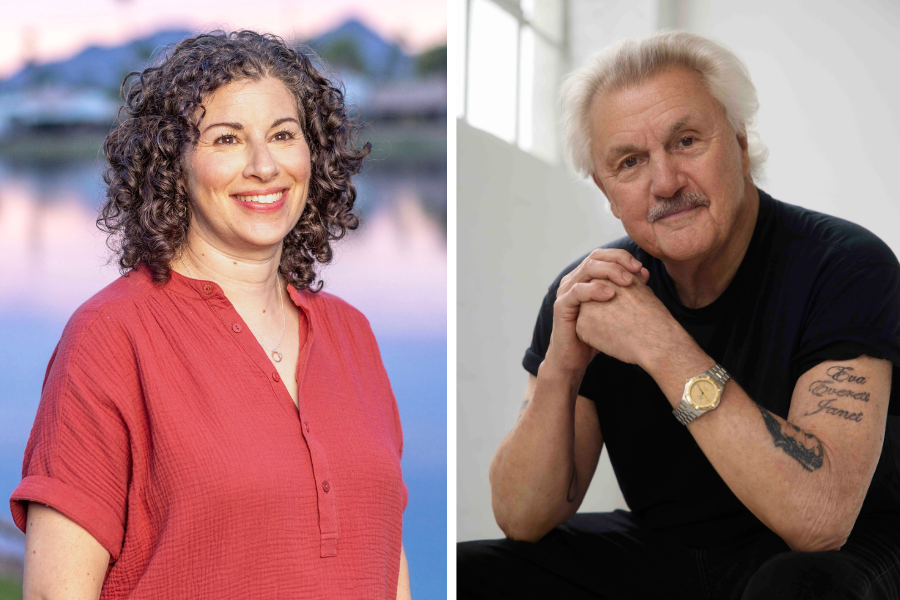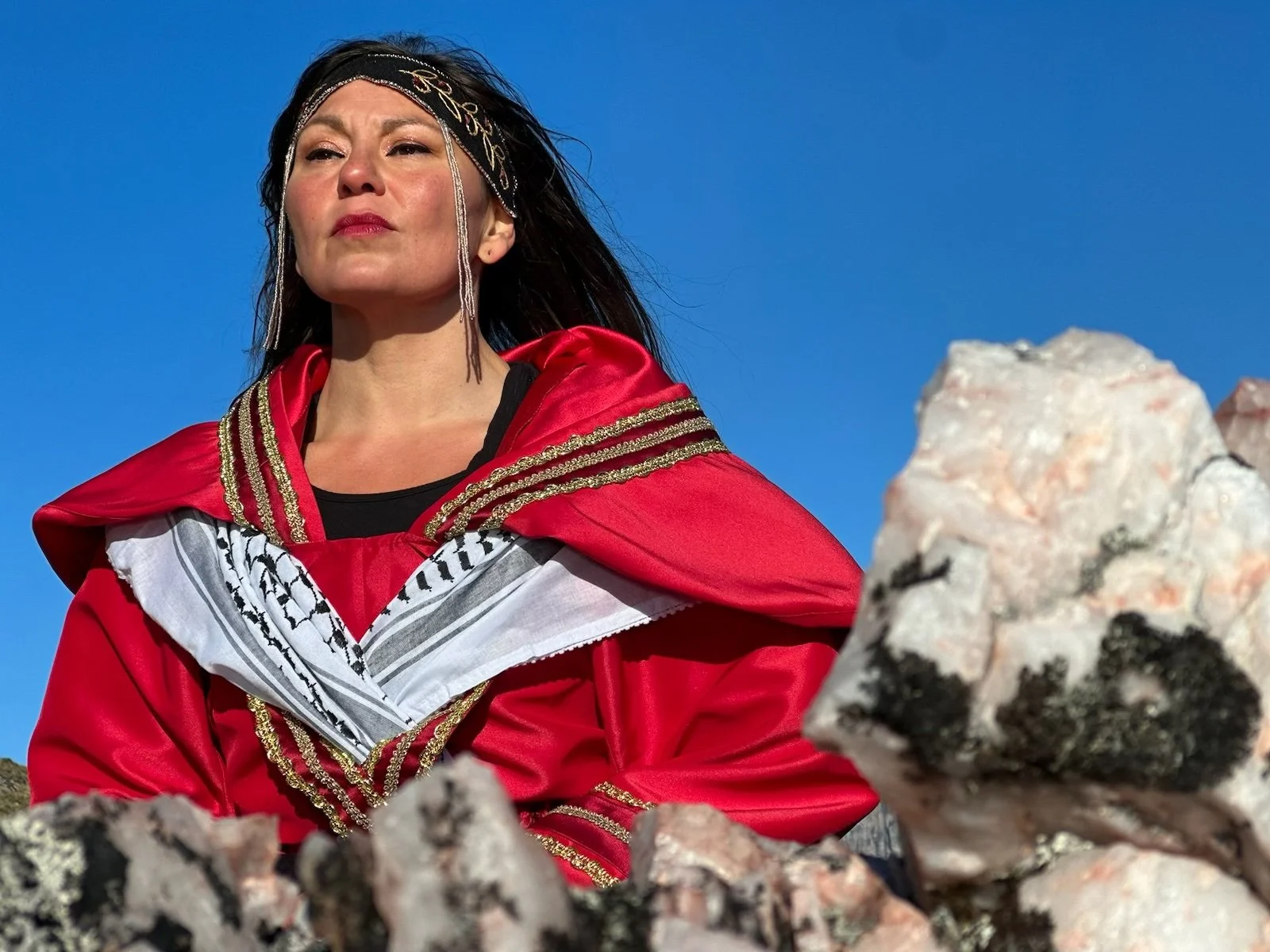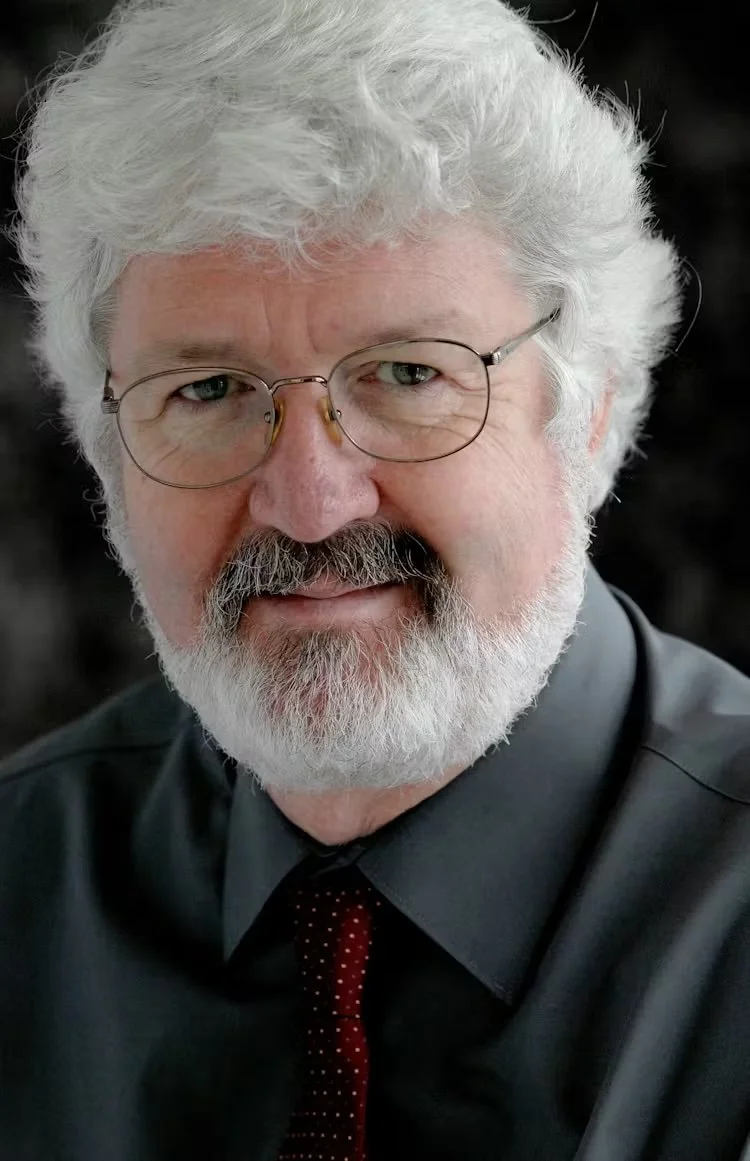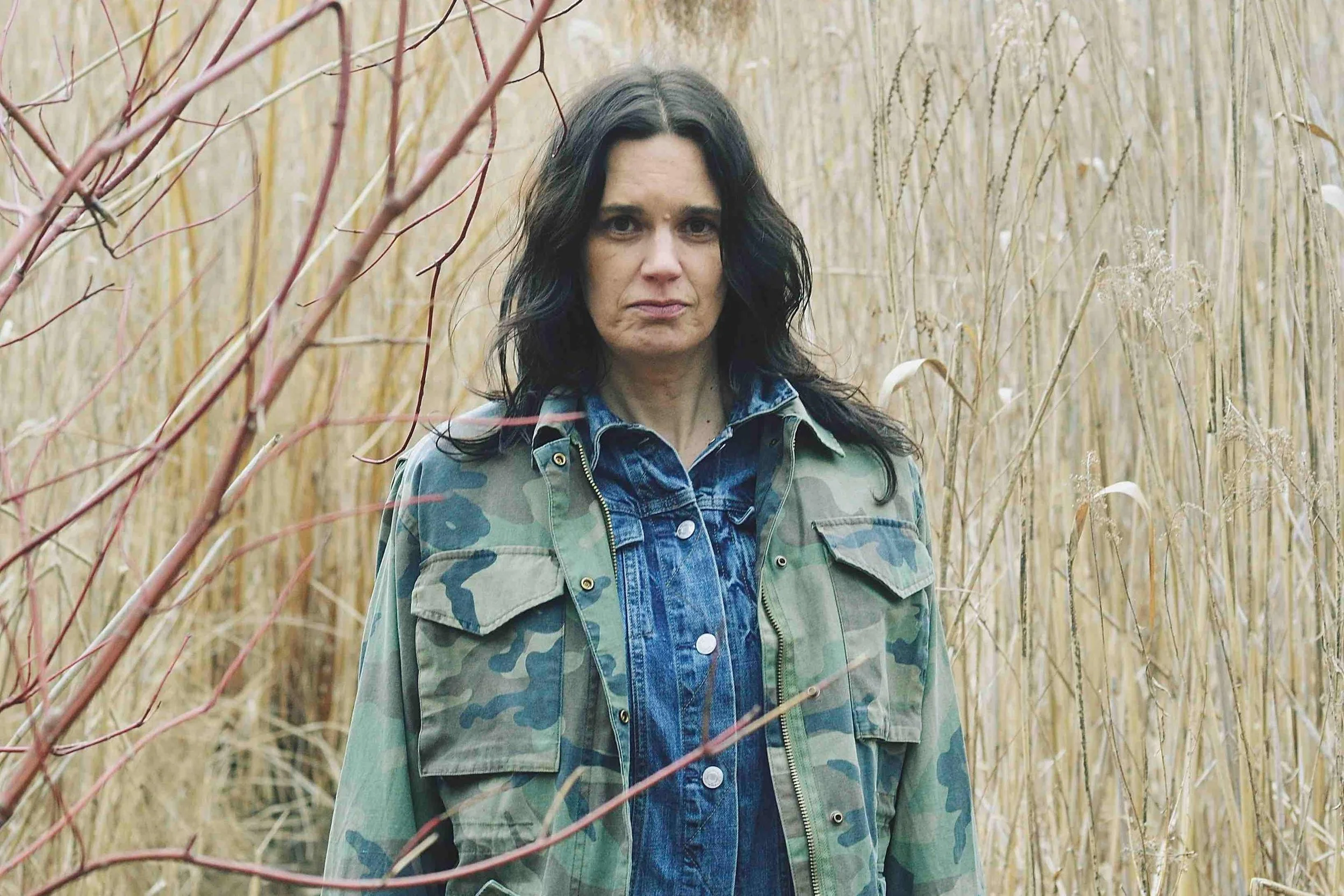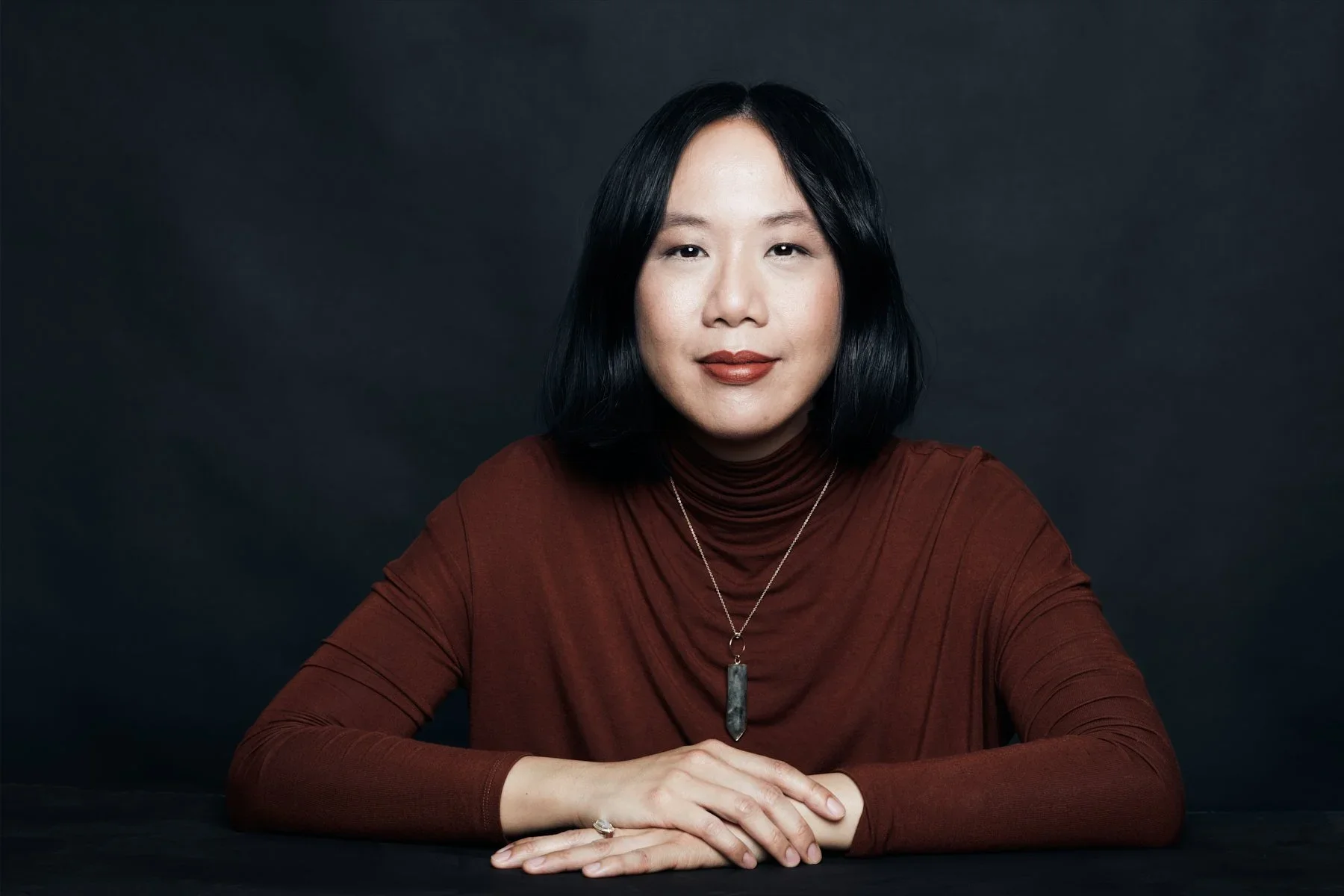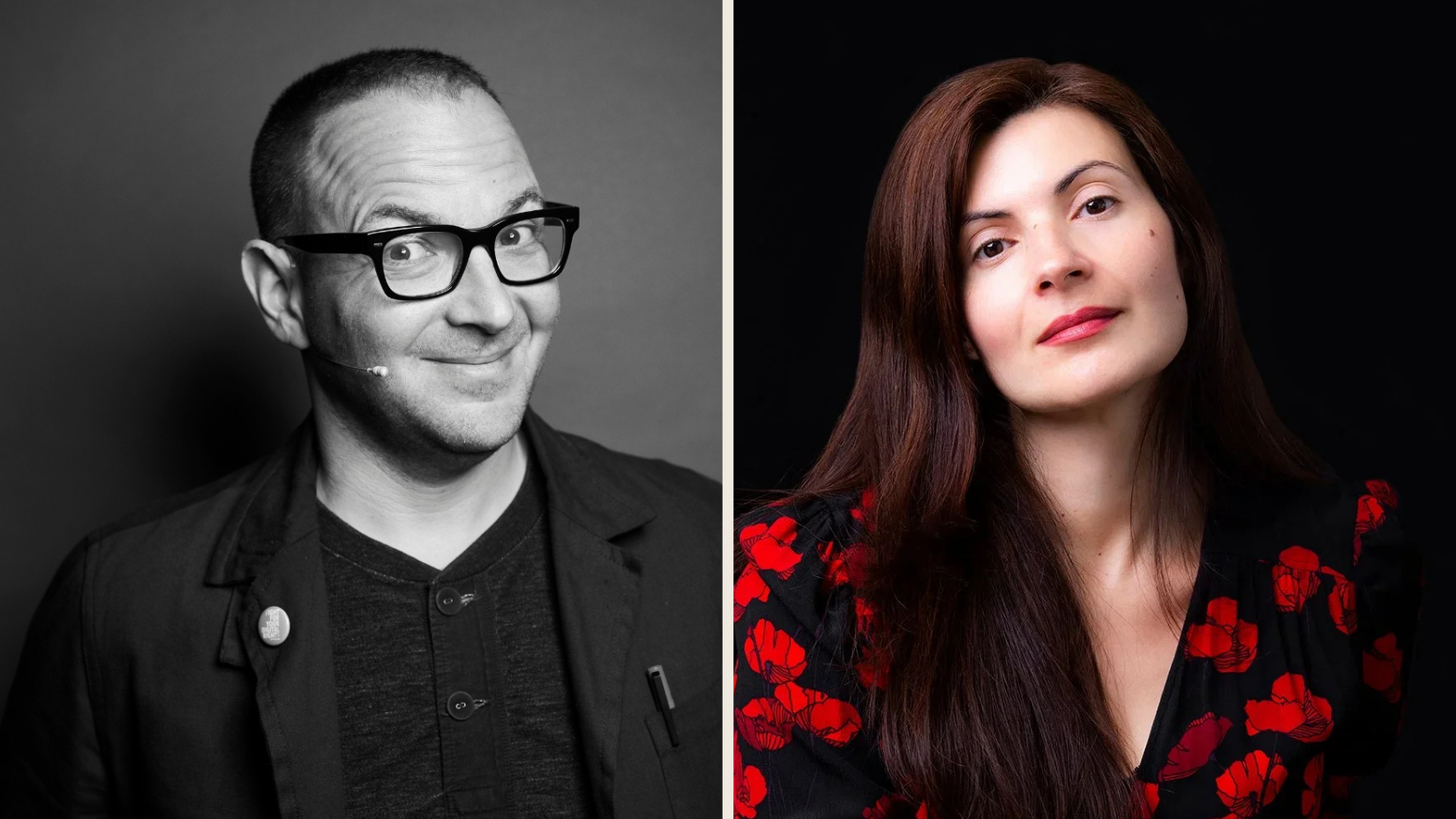Etuaptmumk/Two-Eyed Seeing: Ways of Being and Seeing offers dialogue and guidance amid the urgent climate crisis
Artists Lara Aysal and Rosemary Georgeson lead a Downtown Eastside Heart of the City Festival workshop based on conversations with Elders, activists, and academics
Etuaptmumk/Two-Eyed Seeing: Ways of Being and Seeing.
Firehall Arts Centre presents The Only Animal’s Etuaptmumk/Two-Eyed Seeing: Ways of Being and Seeing in partnership with Vancouver Moving Theatre as part of the Downtown Eastside Heart of the City Festival on November 2 and 3 at 7:30 pm, November 4 at 3 pm and 7:30 pm, and November 5 at 11 am
ETUAPTMUMK, THE MI’KMAQ word for “two-eyed seeing”, is an approach in which one eye is used to see from an Indigenous perspective, and the other is used to see from a Western perspective. Together, both eyes provide a more understanding worldview, allowing knowledge to grow stronger through unity.
The concept was first introduced by Mi’kmaw Elder Albert Marshall of the Eskasoni First Nation in Unama’ki (Cape Breton), Nova Scotia. It caught on quickly, and is now applied across Canada in academic research and community-engaged practices.
A conversation with Marshall sparked an idea for local artists Lara Aysal and Rosemary Georgeson. Driven by the urgency of the climate crisis, the pair conceptualized a cultural sharing event in which etuaptmumk is the backing force for productive community conversations between Indigenous elders, knowledge holders, activists, and academics.
Georgeson, a Sahtu Dene-Coast Salish writer, and storyteller, has witnessed the effects of the climate crisis build up throughout her lifetime. Conversations that incite awareness, she says, are the first step in making commitments to personal and community-wide change.
“I’m a great-grandmother living out on the land,” shares Georgeson. “I’m on Galiano [Island] right now, where my people are from, my family’s from. We’ve been here since the beginning. I grew up inside the commercial-fishing industry.
“Living outside of the city, you see the changes of things that happen. I’ve watched from a time when fish were plentiful, to now you’re lucky if you get one. My mother is from the Northwest Territories up on the Mackenzie River, she was born there. Hearing the stories of what’s happening in her land, permafrost melting, or waters changing, warming up…” Georgeson gazes off into the distance, deep in thought.
“On Galiano, at all the docks, there’s reportings of invasive species that are eating up our natural creatures that belong here,” she continues. “We’ve seen the loss of so many things around here that aren’t with us anymore, that were so plentiful and bountiful when I was a child here. And I get to sit with my family, and we talk about these things that we’ve witnessed in our lifetime here. Remembering the stories that were shared with us through our old family, and knowing that we’re living in a very different time and way of being right now. Our natural food source is very thin, if there’s any of it left.”
Georgeson and Aysal are facilitating discussions of climate change in an event produced by The Only Animal theatre society at the Downtown Eastside Heart of the City Festival called Etuaptmumk/Two-Eyed Seeing: Ways of Being and Seeing. Presented at the Firehall Arts Centre with Vancouver Moving Theatre, the multi-day project starts out with four conversation circles—respectively guided by the themes earth, air, fire, and water—led by Potawatomi community educator Kimi Haxton. Another individual acts as a witness at the conversations, responding to the thoughts that are shared from a listener’s perspective.
Rosemary Georgeson (left) and Lara Aysal.
Different community pillars are conversing at each circle, allowing for a diverse array of perspectives. Among the speakers and knowledge holders participating are co-founder of Spakwus Slolem (The Eagle Song Dancers) Bob Baker (S7aplek, Lanakila); Cowichan Tribes actor Harold Joe (Xulputstun); Musqueam activist sχɬemtəna:t St’agid Jaad Audrey Siegl; Nuxalk territory-born Elder in Residence at Carnegie Community Centre Les Nelson (Tsts-Tsip, “Big Bird”); Vines Art Festival artistic director Heather Lamoureux; and Squamish Nation Hereditary Chief Bill Williams (talalsámkin siyám).
The project concludes with a two-hour workshop discussion facilitated by Georgeson and Aysal that summarizes the key findings of the four conversations. It’s a way for the pair to engage with an audience on what was heard and learned, and brainstorm ways to move forward.
Aysal, who’s originally from Turkey, brings her own history to the conversation on climate change, too. It’s hard not to feel helpless, she notes, against the anxiety and panic that go hand in hand with the current environmental crisis.
“The uselessness I feel was kind of connected to my ancestry, because my ancestry is lost in history through forced migration and assimilation,” explains Aysal. “So I can’t really trace down my ancestry. I don’t know what my great-grandmother’s language is, and my parents don’t either. So that disconnection led me to feel close to the stories that are rooted in this land, and to see that connection with the land, and with time, with history. That gave me strength to see a path that connects all of us. Moving forward happens in communities. It’s a communal thing. So to make those connections, and build that relationship, is the first step.”
Georgeson agrees that connection is vital. She says that isolation tends to make the burden of an issue that’s so all-encompassing even harder to bear.
“When Lara and Brenda contacted me, it seemed it was perfect timing, because I was feeling the frustration of the loss and seeing the changes,” Georgeson says. “I live part time here on Galiano, and you know, our lack of water, our well systems dropping—it’s scary, it’s a scary time. And we need to be talking about it. Finding ways to come together, learn from each other, and work towards something that’s more sustainable.”
This is only the first phase of Georgeson and Aysal’s engagement with the climate crisis. Etuaptmumk/Two-Eyed Seeing: Ways of Being and Seeing is an opportunity for the pair of artists to apply the learnings gleaned to a meaningful creation in the near future that they can share with communities.
“If the problems are so common, the solutions could be that common, too,” says Aysal. “I think the power that we have within us to overcome something is greater than we usually realize. And when we are together with Rosemary, the ideas kind of flow, the stories flow, you know, it’s like completing each other, understanding each other on a deep level. That is, I feel, what people should experience too. That people should understand, and really feel, that this is something happening to all of us.
“So now what do we do?” she asks. “This is so, so beautiful, actually. Very chaotic, very depressing, maybe, but it’s also so beautiful to have the opportunity to sit down together. Now is the time. Now’s the time we can do this. That’s why I feel it’s urgently necessary to come together.”


